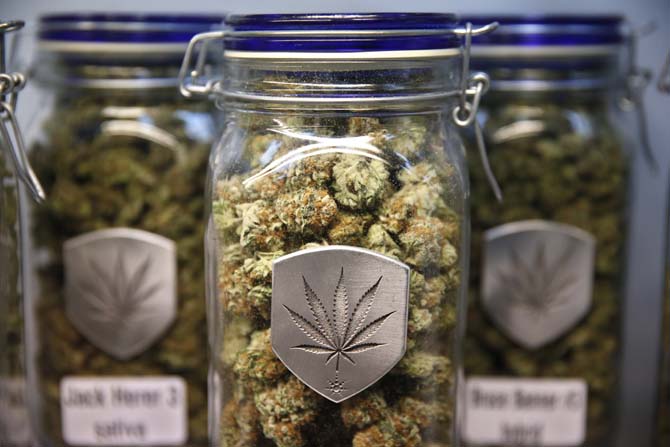Mass communication senior Jacob Irving’s cerebral palsy forced him into braces and physical therapy as a child. Medical marijuana could have relieved Irving of his excruciating pain.
Irving said THC, a component of a cannabis plant, has benefited people who suffer from cerebral palsy, specifically spasticity. If given the correct doses growing up, Irving said he would not suffer from the muscular deformities he has now.
As Irving grew taller, his spastic muscles, or muscles that stay the same length, caused muscular deformities. Irving said the THC can target the source of the problem if administered to those who suffer from spasticity.
Louisiana, however, does not offer medical marijuana, limiting Irving’s treatment options. But with Alaska, Oregon, and Washington, D.C., voting to legalize recreational marijuana, medical marijuana options are now on the table.
Since the midterm election, 18 million Americans live in states where marijuana is legal and 157 million Americans live in states where medical marijuana is legal or marijuana is decriminalized, according to the U.S. Census Bureau.
Political science professor Matthew Hitt said it’s likely for the legalization of marijuana to spread to other states, but expects Louisiana to be one of the last due to the state’s socially conservative lean.
Currently, recreational use of marijuana is legal in Washington, Oregon, Alaska and Colorado. Medical marijuana is legalized in 20 states.
Hitt said states are relaxing their marijuana restrictions in varying degrees.
Colorado is a prime example of the process of states legalizing marijuana, Hitt said. The state made its medical system so relaxed that anyone who could find a legitimate medical reason for the substance could receive a medical marijuana license.
“That proliferated to the point that there were more medical marijuana dispensaries in the state of Colorado than Starbucks and McDonalds combined,” Hitt said.
These states are laboratories of democracy, Hitt said. The states that are legalizing marijuana are watched by other states considering doing the same.
“Frankly, some states might get jealous of the tax revenue recreational states are bringing in and push for it for purely financial reasons,” Hitt said.
Citizens who live near states with legalized marijuana may be more inclined to vote in their own state due to the benefits they see next door.
Some people can argue medical marijuana is a social good, Hitt said. As marijuana is adopted as a social good, people begin to become more comfortable with use of the drug.
Hitt said he saw a dramatic change in public opinion in the last decade. More people are accepting recreational use of marijuana.
However, federal law has not changed with public opinion. Under federal law, marijuana is still an illegal drug.
Nothing is stopping the federal government from striking down the states’ legalization laws, Hitt said. Yet this may change with the 2016 presidential election.
“A conservative president would be in the odd position of invalidating legitimately passed state laws and asserting federal superiority over state governments,” Hitt said.
Support for legalization has historically been a liberal position, while protecting states’ rights is typically a conservative issue, and the legalization of marijuana has complicated the two.
People considering entering the marijuana business are in a difficult position because of differences in federal and state law.
“If a president is elected and he or she has a different view on how vigorously the federal government should enforce federal law in the states that have legalized marijuana, this could immediately crater these businesses,” Hitt said.
Banks are less likely to invest in a marijuana business for their own financial protection. If the federal government cracks down, the banks could be indicted.
Midterm elections see marijuana on the ballot
November 11, 2014
FILE – In this Dec. 27, 2013, file photo, different strains of pot are displayed for sale at Medicine Man marijuana dispensary in Denver. Nationwide marijuana legalization seems inevitable to three-fourths of Americans, according to a new poll out Wednesday, April 2, 2014. The Pew Research Center survey on the nation’s shifting attitudes about drug policy also showed increased support for moving away from mandatory sentences for non-violent drug offenders.(AP Photo/Brennan Linsley, File)
More to Discover








